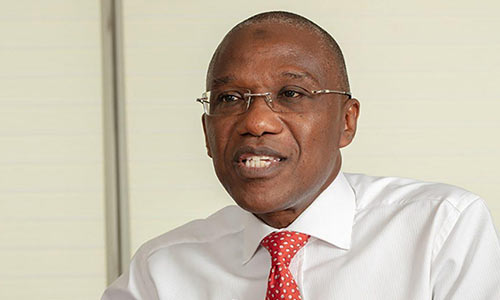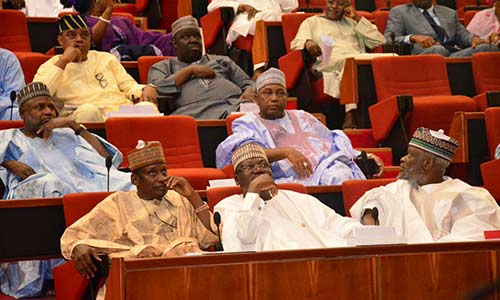No Collateral for N2.2tr Injected into 10 Banks, AMCON Tells Senate

The N2.2 trillion injected into 10 bridged banks by the Asset Management Corporation of Nigeria (AMCON) was not backed by any collateral, the AMCON Chief Executive Officer, Ahmed Kuru, has said.
The development, he said, had made recovery of the funds very difficult.
Kuru said this during an interactive session between the corporation’s management and Chairman of the Senate Committee on Banking, Insurance and Other Financial Institutions, Adetokunbo Abiru, yesterday in Abuja.
The AMCON chief said the corporation had to inject N2.2 trillion into the 10 banks – bridged and owned banks (intervened banks) – bringing Net Book Value (NAV) to zero.
“This N2.2 trillion was not backed by any collateral; which made recovery extremely difficult. The corporation is battling with some of the oil and gas facilities acquired from the bank,” he said.
According to him, AMCON’s intervention was funded by a debt obligation of N4.65 trillion (as at December 31, 2018), which is to be repaid, from internal and external sources, to the CBN by 2024.
“It is worth knowing that, at conception, it was envisaged that AMCON, being a loss minimisation entity, would repay 30 per cent of the obligation. The balance of the AMCON debt was to be offset by the Banking Sector Resolution Cost Fund (“BSRCF”). Some of the assumptions underpinning the funding model were: The banking sector was projected to grow at 20 per cent per annum.
“Each bank would contribute 0.5 per cent (initially 0.3 per cent) of total assets per year to the BSRCF; CBN to contribute N50 billion per year to the BSRCF.
“AMCON’s bonds were refinanced by the CBN at six per cent, and this is higher than the rate payable by other intervention funds. The cash shortfall from internal and external sources meant that there was less fund to invest at the stated reinvestment rate,” he said.
Abiru said the 10th Senate would ensure that the government achieved the objectives of setting up the corporation in 2010.
Abiru frowned at the huge interest rates that AMCON paid to the CBN.
He noted that a situation where AMCON paid six per cent to the CBN and charged some percentage on obligors, whose businesses were already challenged before the corporation’s intervention, was not healthy.



